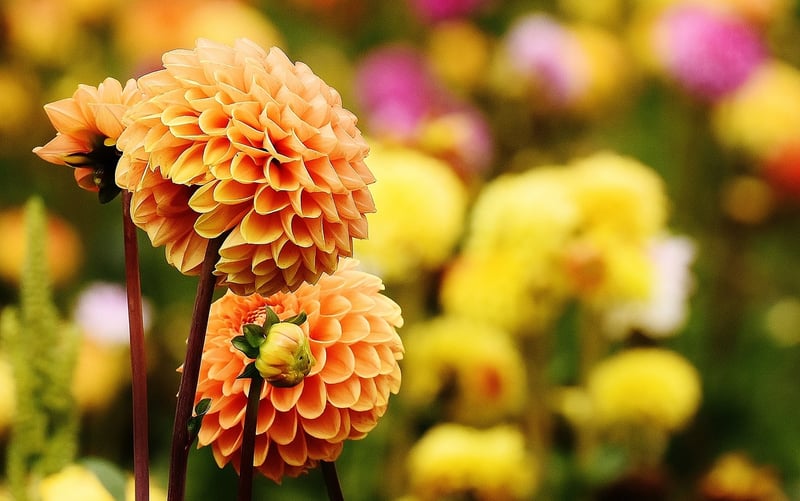Outdoor Gardens
Essential Plant Care Advice for Outdoor Gardens
Welcome to our guide on essential plant care for outdoor gardens! Whether you are a seasoned gardener or just starting, these tips will help you maintain a healthy and vibrant garden year-round. Taking care of your plants properly is crucial for their growth and overall well-being. Let's dive into the key aspects of plant care:
1. Sunlight
Most plants require sunlight to thrive. Ensure your garden receives an adequate amount of sunlight based on the specific needs of your plants. Some plants prefer full sun, while others thrive in partial shade. Observe your garden throughout the day to determine the sunlight patterns.
2. Watering
Proper watering is essential for plant health. Make sure to water your plants consistently, taking into account factors such as plant type, soil drainage, and weather conditions. Overwatering can lead to root rot, while underwatering can cause wilting. Find the right balance for optimal growth.
3. Soil Quality
Good soil quality is the foundation of a healthy garden. Ensure your soil is well-draining and rich in nutrients. Consider adding compost or organic matter to improve soil structure and fertility. Conduct soil tests periodically to monitor pH levels and nutrient content.
4. Pruning and Deadheading
Regular pruning and deadheading promote plant growth and flowering. Remove dead or overgrown branches to encourage new growth. Deadhead flowers to stimulate additional blooms and maintain a tidy appearance. Pruning also helps improve air circulation within the plant.
5. Pest and Disease Control
Monitor your plants for signs of pests and diseases. Early detection is key to preventing infestations that can harm your garden. Use natural remedies or environmentally friendly products to control pests and diseases while minimizing harm to beneficial insects.
6. Mulching
Applying mulch around your plants helps retain moisture, suppress weeds, and regulate soil temperature. Mulch also adds organic matter to the soil as it breaks down. Choose organic mulches like wood chips or straw and replenish them as needed to maintain a healthy garden ecosystem.
7. Fertilizing
Provide your plants with essential nutrients through fertilization. Choose a fertilizer that suits the needs of your plants, whether they require more nitrogen for leafy growth or phosphorus for flowering. Follow the recommended application rates to avoid over-fertilizing, which can harm plants.
8. Seasonal Care
Adjust your plant care routine based on the seasons. Some plants may require protection from frost in winter, while others thrive in the heat of summer. Be mindful of seasonal changes and adapt your gardening practices accordingly to ensure the best outcomes for your plants.
By following these essential plant care tips, you can create a beautiful and flourishing outdoor garden that brings joy and tranquility to your surroundings. Remember to observe your plants regularly, stay informed about their specific needs, and enjoy the rewarding experience of nurturing your garden!

Image source: Pixabay
